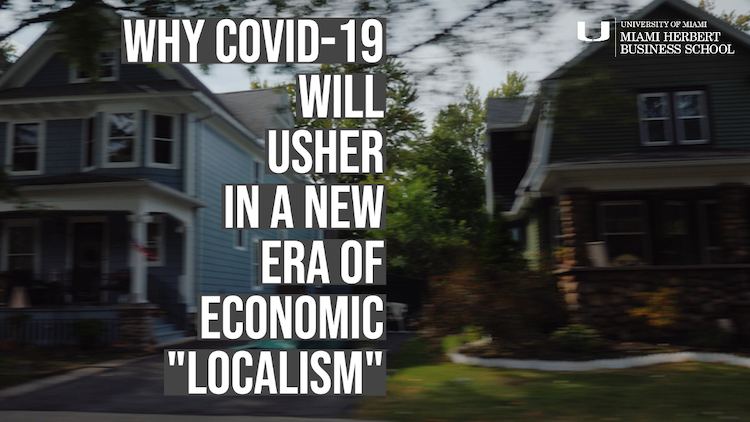Focus on Local Businesses
The health crisis has accelerated digital transformation by bringing online connections to the forefront, such as remote working, online learning, and telehealth. However, people remain anchored in physical place – in the house, neighborhood, city, and home country. Individuals take reassurance from being in familiar places, staying close to home, reconnecting with family, walking the neighborhood streets, and overall taking less risks. The local Whole Foods may feel like the principal social mecca of the times.
In this environment, corporate leaders understand that the speed with which they can reopen their businesses depends on the health of their local employees and communities. By the same token, the community must support the locally-owned businesses that give unique character to the streets of American towns and cities to restore them to profitability and not be supplanted by Amazon delivery trucks or big-box stores.
A Nationalistic Environment
More broadly, nationalism and protectionism promise to shorten global supply chains that have proven inadequate during the crisis. The phrase “locally sourced” will become a more prevalent marketing tool, beyond the common category of locally grown organic food. More marketing campaigns will likely highlight “Made in America.”
To prosper in an increasingly nationalistic environment, companies like Starbucks will need to re-double their localization efforts, adapting their menus to local tastes, employing and training local managers, sourcing more local ingredients, and offering more franchises to local businesspeople.
Digital Compatibility with the Localized Economy
Today’s digital transformation, which allows for far-reaching social and business interactions, may seem at odds with a renewed focus on the local community. Yet, more than ever, data analytics and geo-tracking enable customization and adaptability of standard products and services at the local level. Digital transformation, paradoxically, goes hand-in-hand with a reemphasis on commerce within local communities.
For additional COVID-19 Thought Leadership and business resources from Miami Herbert Business School faculty, click here.

